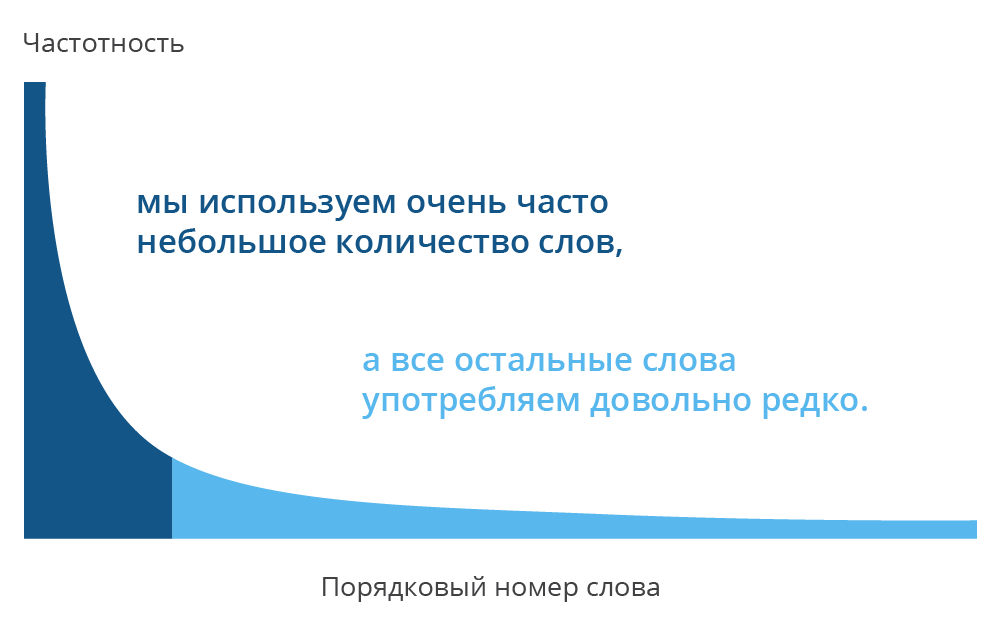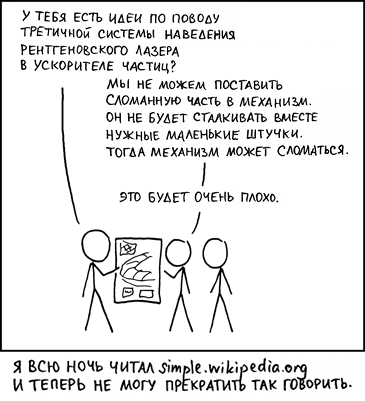Practical use of a small vocabulary

Imagine a week later you will be leaving for Wellington, where the main language is English, and you know it at the level of Landn of e Capital. The idea to learn a new language seems absurd, so how can you master all this knowledge in 7 days? But remember the Pareto law, which promises 80% of the results for 20% of the effort. The vocabulary of any natural language fits very well with this principle. The question is - how many words do you need to know in order to communicate on everyday topics?
“At most a hundred,” says Fabio Capello , the former England national football coach. “When you talk about tactics, you don't need a large vocabulary.” Capello, of course, exaggerates, and yet he worked in England for three and a half years, knowing the language on a superficial level. And this, in his opinion, did not prevent him from coaching the team.
')
So maybe it should be limited to a hundred words?
Exhibitor of the usefulness of words
If the words of any natural language are ordered by the frequency of their use, then
The frequency of the nth word will be inversely proportional to its ordinal number. The first word will occur about 2 times more often than the second, 3 times more often than the third, and so on (see Zipf's law ).

Swedish polyglot Eric Gunnemark believes that only a few hundred correctly chosen words will suffice to communicate on everyday topics. In the book “The Art of Learning Languages” Gunnemark writes: “about 40 correctly chosen, high-frequency words will cover approximately 50% of word usage in everyday speech in any language; 200 words will cover about 80%; 300 words - about 85%; Well, 800–1000 words are about 95% of what needs to be said or heard in the most ordinary situation. ” In other words, if your goal is communication, then in terms of the lexical reserve 85% of the way to achieve it, you will be able to walk in 300 steps, and to walk another 10% you will need as many as 700 steps.
Three hundred of the most commonly used words will be enough to introduce yourself when meeting, place an order in a restaurant, answer everyday questions about mood and well-being, buy tickets, register for a flight, specify an address and much more. But, most importantly, these words will allow you to continue to learn the language in context: read texts, watch videos or movies, and even go to the immediate practice of communication.
The use of a small vocabulary
Ideas about the practical benefits of a small vocabulary are not new. Back in 1925, the philosopher and linguist Charles Ogden proposed a universal international language - Basic English - the vocabulary of which was reduced to the thousand most common words sufficient to communicate in all situations in everyday life and at work. Just imagine, the entire grammar was placed on one page, and the entire dictionary could be learned in just a few weeks.
Sonya Lang, author of the artificial language Toki Pona, will also tell you that a minimal vocabulary is enough for communication. There are only 120 words in this language, and yet you can speak it. It translates poems, short stories, comics and songs.
Since 2003, Wikipedia has been functioning in simplified English , whose articles contain no more than 1000 of the most common words.

A source
Having learned 500 more words, you can understand the news of the American radio station Voice Of America - Learning English , which announcers use no more than 1500 words. And since 2013, labor migrants in Russia have been obliged to know only 850 words necessary for communication in everyday situations.
You may ask how many words you need to learn - 300, 850, 1000 or 1500. It all depends on your goals and preferences. For example, the famous journalist Joshua Foer, the author of the book Einstein Walking the Moon, and the US memorial champion in 2006, decided to live a year in the Congo with Mbenzhele pygmies speaking lingale. All Joshua could find on the Internet in the language of interest to him is a lingala dictionary containing only 1109 words. Joshua remembered these words, having spent on them a total of 22 hours , and went on a trip, not knowing even the basics of grammar. 1109 words were enough to talk with the pygmies and gradually master the language to a higher level.
Search for frequency words
For popular languages, finding frequency dictionaries is pretty easy. We on LinguaLeo, for example, have sets of top English words:
TOP 300 ;
TOP 500 ;
TOP 1000
For less popular languages, frequency words are harder to find and sometimes impossible to do. In these cases, it remains to either take the Russian frequency dictionary, or define your own - that is, find those words that you most often use. To do this, you can copy your messages from tweeter, facebook or any other social network to semantic text analysis sites:
http://istio.com/rus/text/analyz
http://advego.ru/text/seo/
Advego supports many languages, so you can copy not your own messages, but, for example, texts of articles or books in the language you are studying.
Conclusion
Of course, for the full knowledge of the language - reading fiction, watching movies and negotiating - three hundred words are not enough for you. A native speaker with a higher education has a passive vocabulary ... from 50 thousand words. But if you are just starting to learn a language, you should not think about the infinite number of existing words, but about the possibilities that will open up to you when you study only a few hundred.
Learn English with LinguaLeo, pass the vocabulary quiz and improve your level. Follow our news on Twitter , Facebook , vkontakte and Instagram .
Source: https://habr.com/ru/post/254721/
All Articles